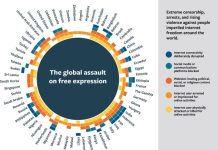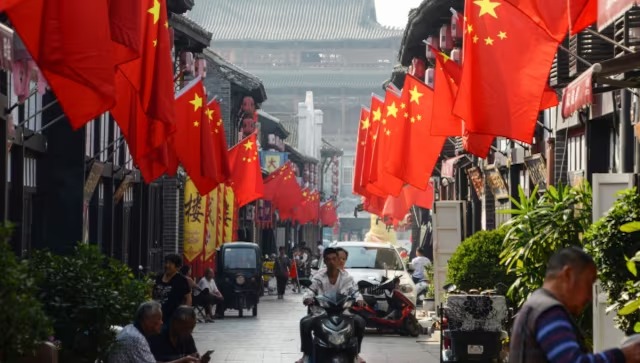The World Bank said in a report released on Thursday that despite a recent recovery driven by investments in factories and construction as well as in demand for services, China’s economy will slow next year, with annual growth dropping to 4.5% from 5.2% this year.
According to the report, the second-largest economy in the world is still struggling to recover from the COVID-19 pandemic and other shocks. These challenges include a weak real estate market, declining global demand for China’s exports, high debt levels, and waning consumer confidence.
According to other projections, growth was expected to be roughly 5% this year before declining in the upcoming months. According to the World Bank, growth will drop even more in 2025, from 4.5% to 4.3% the previous year.
The economy has yoyoed in the past few years, with growth ranging from 2.2% in 2020 to 8.4% in 2021 and 3% last year. Stringent limits on travel and other activities during the pandemic hit manufacturing and transport. Job losses due to those disruptions and to a crackdown on the technology sector, combined with a downturn in the property industry, have led many Chinese to tighten their purse strings.
Most of the jobs created during China’s recovery have been low-skilled work in service industries with low pay, it noted. Chinese also are cautious given the threadbare nature of social safety nets and the fact that the population is rapidly aging, putting a heavier burden for supporting elders on younger generations.
The outlook is subject to considerable downside risks, the report said, adding that a prolonged downturn in the real estate sector would have wider ramifications and would further squeeze already strained local government finances, as meanwhile softer global demand is a risk for manufacturers.
The report highlights the need for China to pursue broad structural reforms and said moves by the central government to take on the burden of supporting cash-strapped local governments also would help improve confidence in the economy.
China’s leaders addressed such issues in their annual Central Economic Work Conference earlier this week, which set priorities for the coming year, but state media reports on the gathering did not provide specifics of policies.
Real estate investment has fallen by 18% in the past two years and more needs to be done to resolve hundreds of billions of dollars in unpaid debts of overextended property developers, the report said.
It said the value of new property sales fell 5% in January-October from a year earlier while new property starts dropped more than 25%. The slowdown was worst in smaller cities that account for about 80% of the market in the country of 1.4 billion people.
Some of that weakness has been offset by strong investment in manufacturing, especially in areas such as electric vehicles and batteries and other renewable energy technologies and in strategically important areas such as computer chips that are receiving strong government support.
But to sustain solid growth China needs a recovery in consumer spending, which took a nosedive during the omicron wave of COVID-19 and has remained below par since late 2021, the report said.
It noted that gains from more investments in construction in a country that already has ample modern roads, ports, railways and housing projects – and also massive overcapacity in cement, steel and many other manufacturing sectors will give the economy less of a boost than could be achieved with more consumer spending.
































